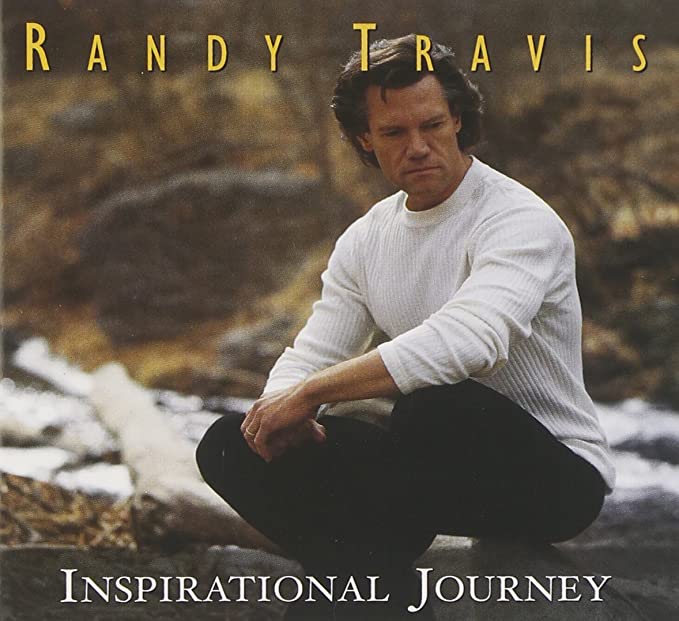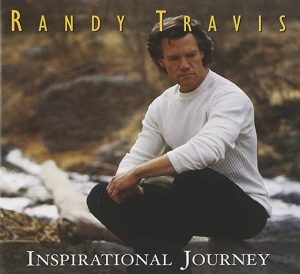 • Randy Travis: Inspirational Journey, Atlantic, 2000.
• Randy Travis: Inspirational Journey, Atlantic, 2000.
RANDY TRAVIS was a key player in the new traditionalist wave that swept Nashville during the mid-’80s. On his first major release, 1986’s Storms of Life, Travis helped bring about a shift back to the music’s roots. With a voice and delivery reminiscent of Lefty Frizell, he managed to sound fresh while offering a link to country’s rich heritage, selling over 20 million records in the process.
It wasn’t the first time musicians have wrestled the music away from the record companies. The precedent was set in the ’60s when the Bakersfield Sound was birthed via Buck Owens and Merle Haggard as a response to the smoother approach of Jim Reeves and Patsy Cline, then again with Willie Nelson and others in the ‘Outlaw’ movement of the early ’70s in response to the ‘Countrypolitan’ approach typified by Kenny Rogers.
Travis and others like Dwight Yoakam, George Strait and Ricky Skaggs came after the Urban Cowboy trend.
During the mid-’90s Travis, who had begun to focus much of his effort on acting, was eclipsed by Garth Brooks, Tim McGraw and other more pop-oriented ‘hat’ acts. To his credit, he never abandoned his roots. While his albums still sell respectable numbers, they’re nowhere near the numbers he once enjoyed.
By 1998 he had left Warner, his label for more than a decade, and signed a much ballyhooed contract with the fledgling DreamWorks Nashville imprint. He was dropped earlier this year after two mid-selling albums.
Now on Atlantic, Inspirational Journey finds him back with long-time producer Kyle Lehning. This is his first full-blown gospel affair; outside of a poignant solo reading on ‘Amazing Grace,’ standards are eschewed in favour of original material.
Travis had a hand in writing three of the tunes, including ‘Carpenter’ with Chip Taylor (‘Wild Thing,’ ‘Angel in the Morning’) and Ron Avis, who does double duty as Travis’ bus driver. Featuring a guest appearance by Waylon Jennings and his wife Jessi Colter, the track is a standout. ‘Don’t Ever Sell Your Saddle’ features Marty Stuart on mandolin.
Travis was baptized a few years back, and this project sounds as sincere as anything he’s tackled in his career. The first single, ‘Baptism,’ has been released to mainstream radio as ‘Down With the Old Man.’ Travis recorded the song last year in a duet with Kenny Chesney (featured on Chesney’s recent Greatest Hits collection).
This disc contains 12 tracks, whereas a special edition, to be marketed through television, will feature eight additional songs previously recorded by Travis that touch on spiritual themes.
• Silent Witness Vols 1 – 4, Rainmaker, 1994 – 1998.
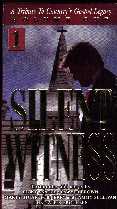 Profiling a wide variety of country acts, this four-part video series runs the gamut from truly moving to embarrassingly trite. Kind of like the music out of Nashville itself. The intention of the producers is that “God will use country music as a tool to bring millions to know His Son.”
Profiling a wide variety of country acts, this four-part video series runs the gamut from truly moving to embarrassingly trite. Kind of like the music out of Nashville itself. The intention of the producers is that “God will use country music as a tool to bring millions to know His Son.”
Each artist shares his or her testimony and performs a song. Filmed as far back as 1994, some of the performers are now dead (Tammy Wynette, Bill Monroe, J.D.Sumner), while others, having lost major label contracts, are long gone from the limelight (Marty Rabon, Gatlin Brothers).
Accompanied by Jerry and Tammy Sullivan, Marty Stuart performs an original song that clarifies the series’ title: “Lord, I am your servant / and I do believe / I don’t need no sign or button on my sleeve / I’ll reach out to my brother / I wanna be a friend / and help him cross the troubled waters over to that Promised Land.” Series host Ricky Skaggs advises country players to stay in the field . . . just because one is saved is no reason to abandon the music.
Glen Campbell comes across well in his interview, but blows credibility with a schlocky song that would be forgettable if it weren’t for the absurdly overblown presentation: Everything is covered in white . . . dancers, backup band — even their instruments — while smoke machines spew out their contents in a misguided attempt to evoke a heavenly setting. Campbell can pull off great material — witness his Jimmy Webb readings — but this is tripe.
Rev. Howard Finster, best known for his artwork on R.E.M., Talking Heads and Adam Again album covers, is a highlight, moved to tears during a mini-sermon on Beulah Land.
Volume Three, subtitled ‘A Night at the Opry’ is made up of veteran performers including Billy Walker, Skeeter Davis, Del Reeves, Jack Green and Connie Smith. While they may no longer rule the charts, their stories are some of the most interesting included in this series, particularly that of Davis, who was suspended from the Grand Ole Opry in 1973 after publicly criticizing Nashville police for arresting Christians accused of handing out anti-war literature in a shopping mall.
Others interviewees include Dolly Parton, Johnny Cash, Wynona Judd, Marty Stuart, Sawyer Brown, Charlie Daniels and the Opry Bluegrass Band.
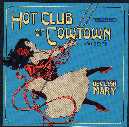 • Hot Club of Cowtown: Dev’lish Mary, Hightone, 2000.
• Hot Club of Cowtown: Dev’lish Mary, Hightone, 2000.
Hot Club of Cowtown offers a scaled down three-piece version of western swing. Kinda like Bob Wills as interpreted by Django Reinhardt. The group’s playing skills are somewhat limited, but the spirit is there. ‘My Life’s Been a Pleasure’ misses the warm tones of Wills’ long-time vocalist Tommy Duncan, but overall this is a nice, unassuming disc.
• Charles K. Wolfe: A Good-Natured Riot: The Birth of the Grand Ole Opry, Vanderbilt / Country Music Foundation, 1999.
A Good Natured Riot documents the beginnings of the still thriving Grand Ole Opry. Currently celebrating its 75th anniversary, it’s the longest-running radio show still broadcasting. Wolfe is one of the finest chroniclers of the music’s history, and includes more of the first-rate research he’s known for. His fascinating accounts are, in many cases, more interesting than the myths that have grown through the years.
Sticking to the early years, from before the beginning, through the 1925 debut (as the WSM Barn Dance) and on to 1940, Wolfe describes the trials and tribulations of keeping the show on air, including Nashville’s initial less-than-positive reaction. Known as the ‘Athens of the South,’ many in the community desired a refined arts scene that stressed classical music rather than the show’s common mix of folk songs and gospel.
Early photos depict musicians smartly dressed in suits and ties. In a sad but effective attempt to create an image, Opry soon mandated that those very same acts would perform costumed as hillbillies and buffoons. Three quarters of a century on, that image now appears indelible.
• Tom Piazza: True Adventures With the King of Bluegrass, Vanderbilt / Country Music Foundation, 1999.
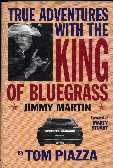
A wild ride with Jimmy Martin, the only player with the chutzpah to try and claim the mantle of Bluegrass King from Bill Monroe.
By turns hilarious and sad, this chronicle of Tom Piazza’s two day interview / adventure with Martin includes dealings with rabid dogs, broken-down cars and an remarkable trip to the Opry. In the process, Martin insults pretty much everyone he comes in contact with. He has little in common with the safe, sanitized rebels that Nashville turns out today. Piazza’s description of Martin as consumed by “deep loneliness and huge ego” appears sadly accurate; occasions in which he appears to possess a heart of gold are tempered by a variety of disturbing incidents demonstrating an uncaring disposition.
Piazza claims an August 1960 date to be “the best single recording session in bluegrass history.” Martin recorded a handful of religious themes that day, which certainly stand with his greatest recordings. Martin claims his favourite release to be the sacred number ‘This World is Not My Home,’ recorded for Decca Records in 1963.
Originally published in the Oxford American’s first annual Southern Music issue in 1997, this hardcover edition is augmented by an annotated discography and an 11 page list of career highlights. In a postscript written after the article appeared Piazza admits that he still hasn’t quite figured Martin out. Nor will the reader, but it’s an amazing tale nonetheless.
• Brian Mansfield & Gary Graff, eds.: Music Hound: Country, Visible Ink, 1997.
As with all titles in the Music Hound series, an excellent overview of what’s hot and what’s not in CDs. Almost four years old, the only complaint would be how quickly these books become out of date. Time for an update.
© John Cody 2001
